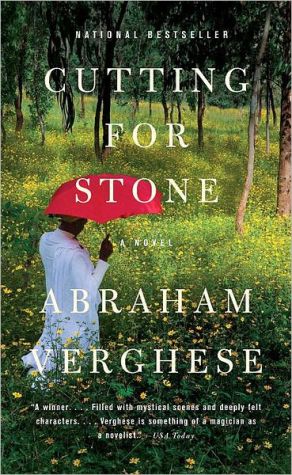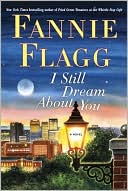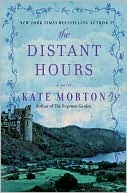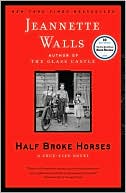Little Earthquakes
Jennifer Weiner's richest, wittiest, most true-to-life novel yet tells the story of three very different women as they navigate one of life's most wonderful and perilous transitions: the journay of new motherhood.\ Becky is a plump, sexy chef who has a wonderfull husband and baby girl, a restaurant that received a citywide acclaim — and the mother-in-law from hell. Kelly is an event planner who's struggling to balance her work and motherhood while dealing with unemployed husband who seems...
Search in google:
Chapter One: LiaI watched her for three days, sitting by myself in the park underneath an elm tree, beside an empty fountain with a series of uneaten sandwiches in my lap and my purse at my side.Purse. It's not a purse, really. Before, I had purses — a fake Prada bag, a real Chanel baguette Sam had bought me for my birthday. What I have now is a gigantic, pink, floral-printed Vera Bradley bag big enough to hold a human head. If this bag were a person, it would be somebody's dowdy, gray-haired great-aunt, smelling of mothballs and butterscotch candies and insisting on pinching your cheeks. It's horrific. But nobody notices it any more than they notice me.Once upon a time, I might have taken steps to assure that I'd be invisible: a pulled-down baseball cap or a hooded sweatshirt to help me dodge the questions that always began Hey, aren't you? and always ended with a name that wasn't mine. No, wait, don't tell me. Didn't I see you in something? Don't I know who you are?Now, nobody stares, and nobody asks, and nobody spares me so much as a second glance. I might as well be a piece of furniture. Last week a squirrel ran over my foot.But that's okay. That's good. I'm not here to be seen; I'm here to watch. Usually it's three o'clock or so when she shows up. I set aside my sandwich and hold the bag tightly against me like a pillow or a pet, and I stare. At first I couldn't really tell anything, but yesterday she stopped halfway past my fountain and stretched with her hands pressing the small of her back. I did that, I thought, feeling my throat close. I did that, too.I used to love this park. Growing up inNortheast Philadelphia, my father would take me into town three times each year. We'd go to the zoo in the summer, to the flower show each spring, and to Wanamaker's for the Christmas light show in December. He'd buy me a treat — a hot chocolate, a strawberry ice cream cone — and we'd sit on a bench, and my father would make up stories about the people walking by. A teenager with a backpack was a rock star in disguise; a blue-haired lady in an ankle-length fur coat was carrying secrets for the Russians. When I was on the plane, somewhere over Virginia, I thought about this park, and the taste of strawberries and chocolate, and my father's arm around me. I thought I'd feel safe here. I was wrong. Every time I blinked, every time I breathed, I could feel the ground beneath me wobble and slide sideways. I could feel things starting to break.It had been this way since it happened. Nothing could make me feel safe. Not my husband, Sam, holding me, not the sad-eyed, sweet-voiced therapist he'd found, the one who'd told me, "Nothing but time will really help, and you just have to get through one day at a time."That's what we'd been doing. Getting through the days. Eating food without tasting it, throwing out the Styrofoam containers. Brushing our teeth and making the bed. On a Wednesday afternoon, three weeks after it happened, Sam had suggested a movie. He'd laid out clothes for me to wear — lime-green linen capris that I still couldn't quite zip, an ivory silk blouse with pink-ribbon embroidery, a pair of pink slides. When I'd picked up the diaper bag by the door, Sam had looked at me strangely, but he hadn't said anything. I'd been carrying it instead of a purse before, and I'd kept right on carrying it after, like a teddy bear or a well-loved blanket, like something I loved that I couldn't bring myself to let go.I was fine getting into the car. Fine as we pulled into the parking garage and Sam held the door for me and walked me into the red-velvet lobby that smelled like popcorn and fake butter. And then I stood there, and I couldn't move another inch."Lia?" Sam asked me. I shook my head. I was remembering the last time we'd gone to the movies. Sam bought me malted milk balls and Gummi worms and the giant Coke I'd wanted, even though caffeine was verboten and every sip caused me to burp. When the movie ended, he had to use both hands to haul me out of my seat. I had everything then, I thought. My eyes started to burn, my lips started to tremble, and I could feel my knees and neck wobbling, as if they'd been packed full of grease and ball bearings. I set one hand against the wall to steady myself so I wouldn't start to slide sideways. I remembered reading somewhere about how a news crew had interviewed someone caught in the '94 Northridge earthquake. How long did it go on? the bland, tan newsman asked. The woman who'd lost her home and her husband had looked at him with haunted eyes and said, It's still happening."Lia?" Sam asked again. I looked at him — his blue eyes that were still bloodshot, his strong jaw, his smooth skin. Handsome is as handsome does, my mother used to say, but Sam had been so sweet to me, ever since I'd met him. Ever since it had happened, he'd been nothing but sweet. And I'd brought him tragedy. Every time he looked at me, he'd see what we had lost; every time I looked at him, I'd see the same thing. I couldn't stay. I couldn't stay and hurt him anymore."I'll be right back," I said. "I'm just going to run to the bathroom." I slung my Vera Bradley bag over my shoulder, bypassed the bathroom, and slipped out the front door.Our apartment was as we'd left it. The couch was in the living room, the bed was in the bedroom. The room at the end of the hall was empty. Completely empty. There wasn't so much as a dust mote in the air. Who had done it? I wondered, as I walked into the bedroom, grabbed handfuls of underwear and T-shirts and put them into the bag. I hadn't even noticed, I thought. How could I not have noticed? One day the room had been full of toys and furniture, a crib and a rocker, and the next day, nothing. Was there some service you could call, a number you could dial, a website you could access, men who would come with garbage bags and vacuum cleaners and take everything away?Sam, I'm so sorry, I wrote. I can't stay here anymore. I can't watch you be so sad and know that it's my fault. Please don't look for me. I'll call when I'm ready. I'm sorry...I stopped writing. There weren't even words for it. Nothing came close. I'm sorry for everything, I wrote, and then I ran out the door.The cab was waiting for me outside of our apartment building's front door, and, for once, the 405 was moving. Half an hour later, I was at the airport with a stack of crisp, ATM-fresh bills in my hand. "Just one way?" the girl behind the counter had asked me."One way," I told her and paid for my ticket home. The place where they have to take you in. My mother hadn't seemed too happy about it, but then, she hadn't been happy about anything to do with me — or, really, anything at all — since I was a teenager and my father left. But there was a roof over my head, a bed to sleep in. She'd even given me a coat to wear on a cold day the week before.The woman I've been watching walked across the park, reddish-gold curls piled on her head, a canvas tote bag in her hand, and I leaned forward, holding tight to the edges of the bench, trying to make the spinning stop. She set her bag down on the lip of the fountain and bent down to pet a little black-and-white-spotted dog. Now, I thought, and I reached into my sleepover-size sack and pulled out the silver rattle. Should we get it monogrammed? Sam had asked. I'd just rolled my eyes and told him that there were two kinds of people in the world, the ones who got things monogrammed at Tiffany's and the ones who didn't, and we were definitely Type Twos. One silver rattle from Tiffany's, unmonogrammed, never used. I walked carefully over to the fountain before I remembered that I'd become invisible and that nobody would look at me no matter what I did. I slid the rattle into her bag and then I slipped away.Copyright © 2004 by Jennifer Weiner, Inc.The Washington Post - Deborah Sussman SusserAnd yet after I'd finished Little Earthquakes, I found myself missing the characters. Theirs is a world where young mothers invite strange women in distress into their homes, serve them tea and sympathy and tell them, in essence, "You go, girlfriend." It may not be realistic as literary worlds go, but it is reassuring in its warmth and predictability. And judging by the success of chick lit generally and Weiner's books specifically, a lot of us out there are willing -- even eager -- to suspend our disbelief long enough to enter it.
Chapter One: Lia\ I watched her for three days, sitting by myself in the park underneath an elm tree, beside an empty fountain with a series of uneaten sandwiches in my lap and my purse at my side.\ Purse. It's not a purse, really. Before, I had purses — a fake Prada bag, a real Chanel baguette Sam had bought me for my birthday. What I have now is a gigantic, pink, floral-printed Vera Bradley bag big enough to hold a human head. If this bag were a person, it would be somebody's dowdy, gray-haired great-aunt, smelling of mothballs and butterscotch candies and insisting on pinching your cheeks. It's horrific. But nobody notices it any more than they notice me.\ Once upon a time, I might have taken steps to assure that I'd be invisible: a pulled-down baseball cap or a hooded sweatshirt to help me dodge the questions that always began Hey, aren't you? and always ended with a name that wasn't mine. No, wait, don't tell me. Didn't I see you in something? Don't I know who you are?\ Now, nobody stares, and nobody asks, and nobody spares me so much as a second glance. I might as well be a piece of furniture. Last week a squirrel ran over my foot.\ But that's okay. That's good. I'm not here to be seen; I'm here to watch. Usually it's three o'clock or so when she shows up. I set aside my sandwich and hold the bag tightly against me like a pillow or a pet, and I stare. At first I couldn't really tell anything, but yesterday she stopped halfway past my fountain and stretched with her hands pressing the small of her back. I did that, I thought, feeling my throat close. I did that, too.\ I used to love this park. Growing up in Northeast Philadelphia, my father would take me into town three times each year. We'd go to the zoo in the summer, to the flower show each spring, and to Wanamaker's for the Christmas light show in December. He'd buy me a treat — a hot chocolate, a strawberry ice cream cone — and we'd sit on a bench, and my father would make up stories about the people walking by. A teenager with a backpack was a rock star in disguise; a blue-haired lady in an ankle-length fur coat was carrying secrets for the Russians. When I was on the plane, somewhere over Virginia, I thought about this park, and the taste of strawberries and chocolate, and my father's arm around me. I thought I'd feel safe here. I was wrong. Every time I blinked, every time I breathed, I could feel the ground beneath me wobble and slide sideways. I could feel things starting to break.\ It had been this way since it happened. Nothing could make me feel safe. Not my husband, Sam, holding me, not the sad-eyed, sweet-voiced therapist he'd found, the one who'd told me, "Nothing but time will really help, and you just have to get through one day at a time."\ That's what we'd been doing. Getting through the days. Eating food without tasting it, throwing out the Styrofoam containers. Brushing our teeth and making the bed. On a Wednesday afternoon, three weeks after it happened, Sam had suggested a movie. He'd laid out clothes for me to wear — lime-green linen capris that I still couldn't quite zip, an ivory silk blouse with pink-ribbon embroidery, a pair of pink slides. When I'd picked up the diaper bag by the door, Sam had looked at me strangely, but he hadn't said anything. I'd been carrying it instead of a purse before, and I'd kept right on carrying it after, like a teddy bear or a well-loved blanket, like something I loved that I couldn't bring myself to let go.\ I was fine getting into the car. Fine as we pulled into the parking garage and Sam held the door for me and walked me into the red-velvet lobby that smelled like popcorn and fake butter. And then I stood there, and I couldn't move another inch.\ "Lia?" Sam asked me. I shook my head. I was remembering the last time we'd gone to the movies. Sam bought me malted milk balls and Gummi worms and the giant Coke I'd wanted, even though caffeine was verboten and every sip caused me to burp. When the movie ended, he had to use both hands to haul me out of my seat. I had everything then, I thought. My eyes started to burn, my lips started to tremble, and I could feel my knees and neck wobbling, as if they'd been packed full of grease and ball bearings. I set one hand against the wall to steady myself so I wouldn't start to slide sideways. I remembered reading somewhere about how a news crew had interviewed someone caught in the '94 Northridge earthquake. How long did it go on? the bland, tan newsman asked. The woman who'd lost her home and her husband had looked at him with haunted eyes and said, It's still happening.\ "Lia?" Sam asked again. I looked at him — his blue eyes that were still bloodshot, his strong jaw, his smooth skin. Handsome is as handsome does, my mother used to say, but Sam had been so sweet to me, ever since I'd met him. Ever since it had happened, he'd been nothing but sweet. And I'd brought him tragedy. Every time he looked at me, he'd see what we had lost; every time I looked at him, I'd see the same thing. I couldn't stay. I couldn't stay and hurt him anymore.\ "I'll be right back," I said. "I'm just going to run to the bathroom." I slung my Vera Bradley bag over my shoulder, bypassed the bathroom, and slipped out the front door.\ Our apartment was as we'd left it. The couch was in the living room, the bed was in the bedroom. The room at the end of the hall was empty. Completely empty. There wasn't so much as a dust mote in the air. Who had done it? I wondered, as I walked into the bedroom, grabbed handfuls of underwear and T-shirts and put them into the bag. I hadn't even noticed, I thought. How could I not have noticed? One day the room had been full of toys and furniture, a crib and a rocker, and the next day, nothing. Was there some service you could call, a number you could dial, a website you could access, men who would come with garbage bags and vacuum cleaners and take everything away?\ Sam, I'm so sorry, I wrote. I can't stay here anymore. I can't watch you be so sad and know that it's my fault. Please don't look for me. I'll call when I'm ready. I'm sorry...I stopped writing. There weren't even words for it. Nothing came close. I'm sorry for everything, I wrote, and then I ran out the door.\ The cab was waiting for me outside of our apartment building's front door, and, for once, the 405 was moving. Half an hour later, I was at the airport with a stack of crisp, ATM-fresh bills in my hand. "Just one way?" the girl behind the counter had asked me.\ "One way," I told her and paid for my ticket home. The place where they have to take you in. My mother hadn't seemed too happy about it, but then, she hadn't been happy about anything to do with me — or, really, anything at all — since I was a teenager and my father left. But there was a roof over my head, a bed to sleep in. She'd even given me a coat to wear on a cold day the week before.\ The woman I've been watching walked across the park, reddish-gold curls piled on her head, a canvas tote bag in her hand, and I leaned forward, holding tight to the edges of the bench, trying to make the spinning stop. She set her bag down on the lip of the fountain and bent down to pet a little black-and-white-spotted dog. Now, I thought, and I reached into my sleepover-size sack and pulled out the silver rattle. Should we get it monogrammed? Sam had asked. I'd just rolled my eyes and told him that there were two kinds of people in the world, the ones who got things monogrammed at Tiffany's and the ones who didn't, and we were definitely Type Twos. One silver rattle from Tiffany's, unmonogrammed, never used. I walked carefully over to the fountain before I remembered that I'd become invisible and that nobody would look at me no matter what I did. I slid the rattle into her bag and then I slipped away.\ Copyright © 2004 by Jennifer Weiner, Inc.
\ From Barnes & NobleThree Philadelphia women meet at a pregnancy yoga class. Each has a problem: Becky is strapped with an overbearing, disapproving mother-in-law; Ayinde learns that her basketball star husband is guilty of adultery; and Kelly must cope with her corporate husband's job crisis. Added to this fictional stew is the plight of actress Lia, who has returned home to Philly in the wake of her infant baby's death.\ \ \ \ \ From the Publisher"Hilarious, heartbreaking, and insightful." — The Miami Herald\ "Immensely readable. . . . Weiner's gift lies in her ability to create characters who both amuse us and make us care." — The Washington Post\ "Weiner, a wonderful natural writer and storyteller, renders her characters and their lives in details that resonate as the real deal." — Publishers Weekly (starred review)\ "Lively, witty, and often touching. . . . Weiner's snappy dialogue and captivating characters make Little Earthquakes endlessly appealing." — People\ \ \ \ Deborah Sussman SusserAnd yet after I'd finished Little Earthquakes, I found myself missing the characters. Theirs is a world where young mothers invite strange women in distress into their homes, serve them tea and sympathy and tell them, in essence, "You go, girlfriend." It may not be realistic as literary worlds go, but it is reassuring in its warmth and predictability. And judging by the success of chick lit generally and Weiner's books specifically, a lot of us out there are willing -- even eager -- to suspend our disbelief long enough to enter it.\ — The Washington Post\ \ \ \ \ Publishers WeeklyNovels that shift among multiple points of view, such as this one, are often read by multiple narrators, or at least one very skilled actor. Weiner is, unfortunately, no actor, and her reading, while serviceable, doesn't do the book justice. Though her voice is pleasantly pitched, she largely eschews character voices, which is a shame since her four primary characters-sensible, sarcastic Rebecca Rothstein Rabinowitz; Uber-organized Kelly Day; beautiful but lonely Ayinde Towne; and brokenhearted actress Lia Frederick-are so distinctly different. The story focuses on the tremors, both big and small, that shake up each woman's life. Rebecca, the quartet's down-to-earth center, has more trouble managing her demanding, self-absorbed mother-in-law than her newborn, but meeting Lia, who's recently lost her infant son, puts things into perspective for her. Ayinde, meanwhile, must deal with her cheating pro-basketball player husband, and Kelly is forced to come to terms with the fact that the reality of being married and having a baby is much harder than she ever dreamed. This is a poignant, thoughtful look at marriage and new motherhood, but it would have been better served by a more skilled narrator. Simultaneous release with the Atria hardcover (Forecasts, Sept. 13). (Sept.) Copyright 2004 Reed Business Information.\ \ \ \ \ Library JournalFour young women who seem to have little in common get to know each other in the late stages of first pregnancy and childbirth. At a time when each thinks she should be happy and fulfilled, there is the overpowering sense of fragile weariness that comes with a new baby. One of the women is married to a basketball star who shows up in the delivery room smelling of another woman's perfume; another has a steady, ambitious husband who loses his job and becomes a long-term couch potato. In the development of the individual stories, understanding, forgiveness, and maturity begin to emerge. The voices of the women drive the narrative, and the author, who also reads the story, gives each person a distinct and appealing personality. Female listeners will relate to the universality of the friendship and warmth among these characters; recommended for all popular listening collections.-Barbara Valle, El Paso P.L., TX Copyright 2005 Reed Business Information.\ \ \ \ \ Kirkus ReviewsWeiner (Good in Bed, 2001; In Her Shoes, 2002) follows four Philadelphia women as they face the challenges, from trivial to profound, of new motherhood, becoming friends in the process. Becky, Kelly, and Ayinde meet at a pregnancy yoga class. At the same time, Lia, an actress who has returned home to Philly to come to grips with her baby's death, begins following Becky around and leaving her baby gifts (Weiner overlooks the stalker-creepiness of this behavior) until she joins the friendship circle as a kind of emotional counterweight to keep the others' problems in perspective. In Weiner's symmetry, each woman starts out with an issue and each faces a challenge. Lia's challenge is obviously her loss; her underlying issue is her mother's emotional coldness. Becky's issue is weight. A restaurant owner married to a nice Jewish doctor, Becky's challenge is her obnoxious, overbearing mother-in-law. Overachieving Kelly's issue is the poverty she has overcome. An event planner who has orchestrated her life for maximum security, Kelly is thrown a curve when her husband gets laid off from his corporate job and becomes a couch potato. For Ayinde, beautiful and from a privileged background as the daughter of an actor and a model, being biracial has been a lifelong struggle. Now her basketball star husband is slapped with a paternity suit by another woman. But love conquers all. Becky's husband miraculously grows a spine and quits being a mama's boy. Kelly and her husband learn to communicate and support each other in following their real professional dreams. Ayinde's husband proves he is a devoted father, and his former paramour visits Ayinde to assure her how much he really loves Ayinde. Lia findspeace with her loss, realizes that her mother has always loved her, and reunites with her husband. After her realistic examination of new motherhood and marital strain, Weiner pulls her punches with a too-neat ending. Film rights optioned to Universal Pictures for Stacey Sher and Michael Shamberg at Double Feature; author tour. Film agent: Jake Weiner/BenderSpink; literary agent: Joanna Pulcini\ \








